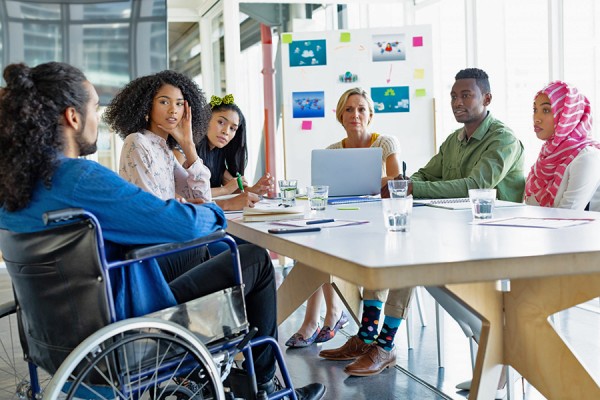 The March 9 workshop “Accessibility, Inclusion, and the Limits of the Law” is the second in the online series “It’s Accessible, but is it Inclusive?”
The March 9 workshop “Accessibility, Inclusion, and the Limits of the Law” is the second in the online series “It’s Accessible, but is it Inclusive?”
How can we achieve greater social inclusion for people with disabilities? This question lies at the heart of a regulatory regime that has been developing steadily in Canada since the mid-2000s.
Law professor Laverne Jacobs argues much work remains for equality law to have a truly transformative impact on the lives of people with disabilities, in an interview with student researcher Nadia Shivratan that will be webcast Tuesday, March 9.
“Accessibility, Inclusion, and the Limits of the Law” is the second in a weekly series of online Accessibility Awareness Day events presented each Tuesday in March by the Office of Human Rights, Equity, and Accessibility.
Dr. Jacobs, associate dean for research and graduate studies and the founding director of the Law, Disability, and Social Change Project at Windsor Law, is a human rights expert, informed through her professional work as a strong advocate for equal rights, as well as personally as a person with a disability.
Shivratan is a student researcher with the Law, Disability, and Social Change Project. She founded the non-profit LawLinks, which connected more than 100 law students who lost employment due to COVID-19 to volunteer opportunities across Canada.
The Office of Human Rights, Equity, and Accessibility has organized the presentations on the theme “It’s Accessible, but is it Inclusive?” with the intention of fostering an environment in which all people feel like they belong and are active contributors to the campus and the greater community.
The series on the theme “It’s Accessible, but is it Inclusive?” will continue:
- March 16, “Supporting Human-Centered Design”
- March 23, “Accessible Online Education During the Pandemic and Beyond”
- March 30, “Keynote Address: Inclusion has to be Purposeful”
Find more information, including session registration, on the Accessibility Awareness Day website.
